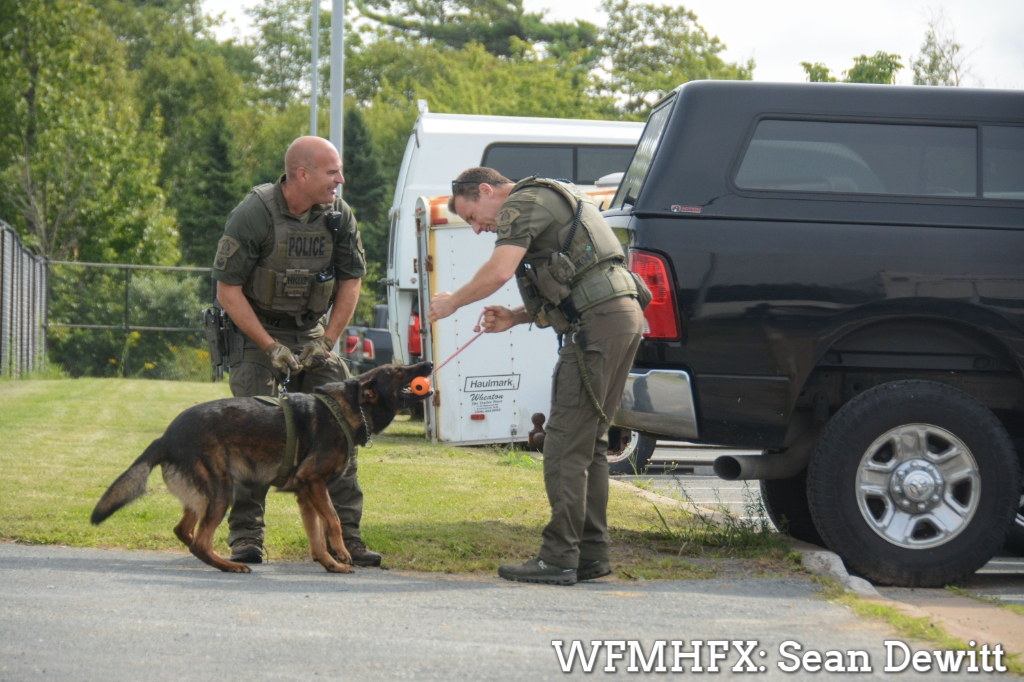RCMP K9’s Lear and Nixon demonstrated a few of thier tasks commonly asked for during a K9’s service.

The dogs and handlers demonstrated a person search by smell, drug detection and evidence search. The K9’s were excited to perform their tasks and receive their rewards for a job well done from their handlers who they are binded to early in their service.

More about RCMP service dogs below.

**** Info via RCMP
Our police dogs
Our general duty and specialty detection teams use only purebred German shepherds.
Why we use German shepherds

With their versatility, strength and courage, German shepherds are well suited to Canadian police work.
Their heavy coats allow them to work in extreme weather, a necessity for policing in Canada.

Desired characteristics for our police dogs
The RCMP has no preference between male or female dogs, as long as they bring the drive and temperament needed to be a Police Service Dog.

Dogs need to:
- be in perfect physical condition
- have even temperament
- have a keen hunting instinct
- be of sound character
We teach all our dogs to protect their handlers and themselves, and to apprehend suspects on command. Any dogs that are reluctant to carry out these actions are not accepted into our program.

Quick facts about our police dogs
- They can search a car in approximately three minutes
- They can work up to four hours with rest intervals
- Care for healthy police dogs cost less than $1,500 per year
- They start their police training between the age of 14 to 18 months
- They usually retire at 7 or 8 years old
- Puppies born in our breeding program have a 33% to 40% chance of becoming a working police dog or breeding female due to the high standards they need to meet
Our breeding program

The RCMP started a program to breed our own dogs in 1999. We previously purchased all our dogs from brokers in North America and Europe, but we had no control over prices or availability.

We have approximately 18 breeding females that live with civilians close to our kennels.
We now produce approximately 100 German shepherd pups every year. This satisfies the annual training need for 25 to 35 dogs.

The Centre finds suitable homes for those puppies not destined to become working dogs. We are not accepting requests for adoption or purchase of these dogs at this time.
Our imprinting program

The imprinting program consists of RCMP members who volunteer for Police Dog Services. Some volunteers are selected for a week-long Potential Police Dog Imprinting Course. At the end of the course, the volunteers are assigned potential police dogs to imprint.

Imprinting of puppies begins with early neurological stimulation and continues until they enter training. Potential police dogs are monitored monthly and are tested at 49 days and 4, 8 and 12 months.

When the pup is about 14 to 16 months old, they return to the kennels for basic training. It lasts about 4 months and molds a handler and dog into a capable working unit. To be successful, the handler needs to win the dog’s confidence.
Retirement

When our dogs retire from duty, the handler can keep them as a pet. If this is not an option, the dog can be adopted. The handler arranges the adoption to ensure the dog goes to a suitable home.




